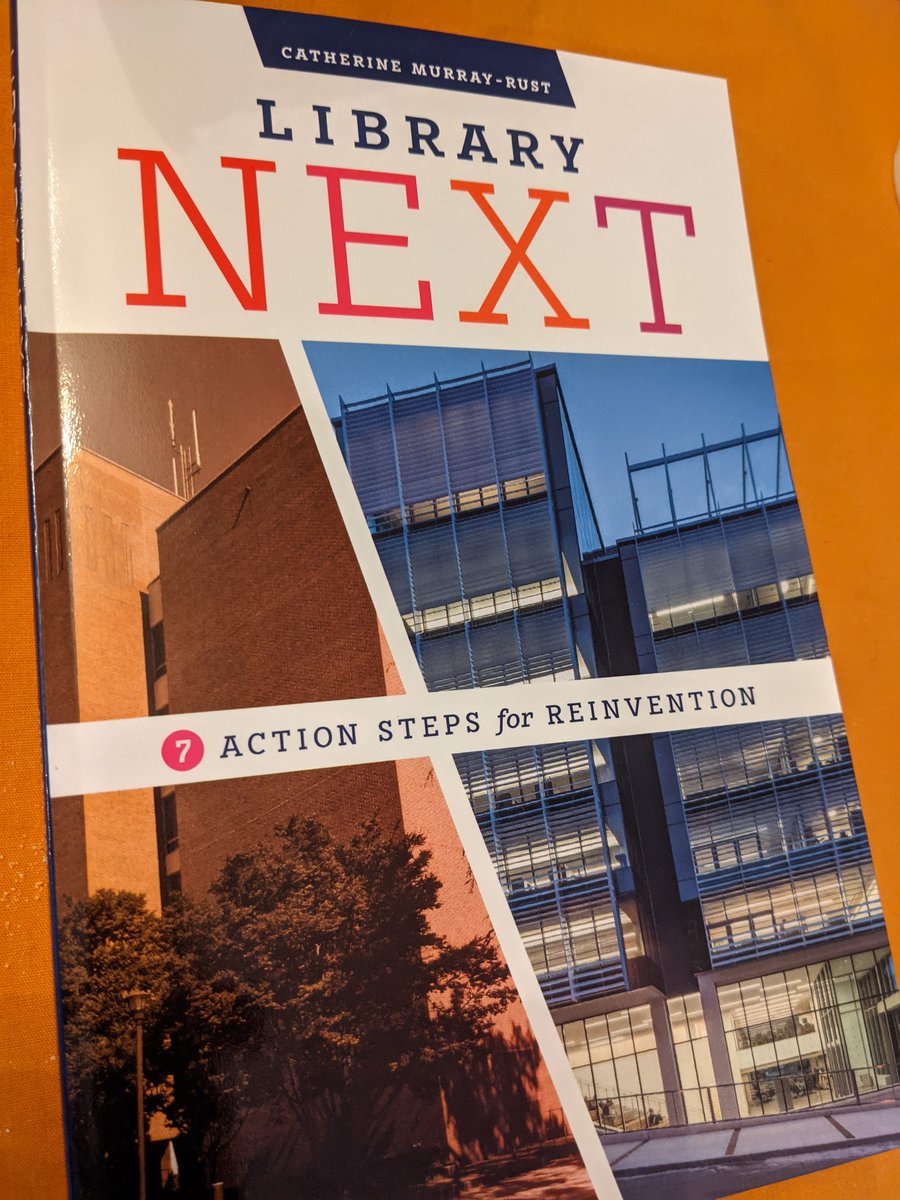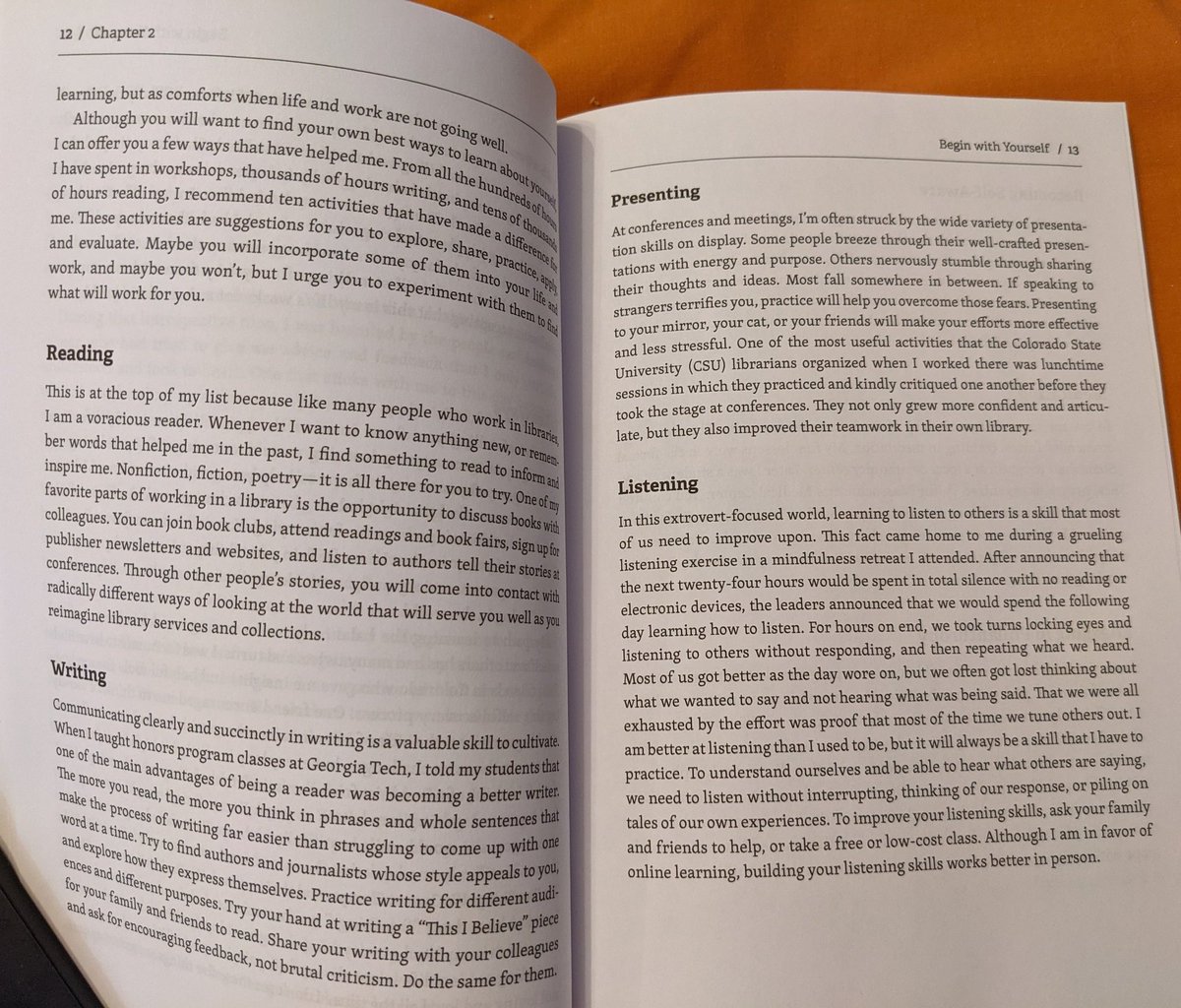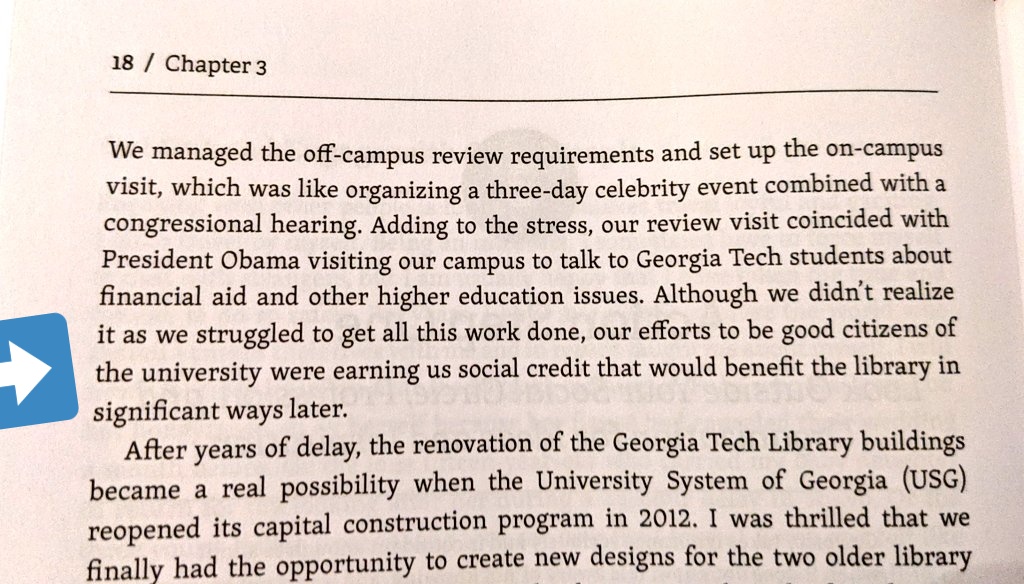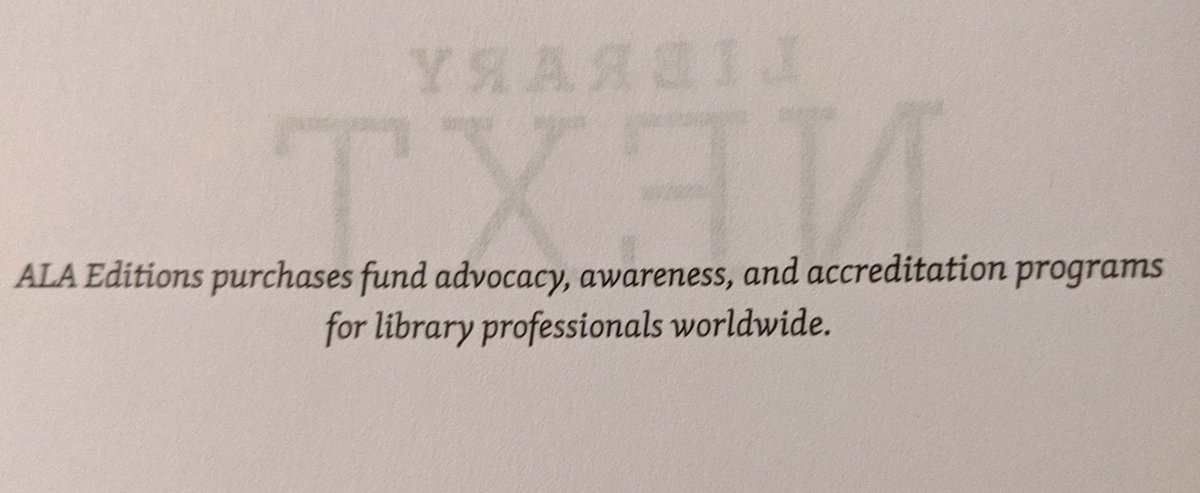This morning I've been reading Catherine Murray-Rust's new book, which is a primer on professional and organizational reinvention, drawn from her experience leading the library at Georgia Tech and from across her career. https://www.amazon.com/dp/0838948391
Most interesting for me in Murray-Rust's book is how she responded to opportunity & adversity. When managing the reaccreditation -- a major new assignment, mission critical to the university -- was thrust upon her in front of colleagues without warning, she wasn't happy! ....
... Yet she reflects in retrospect at this opportunity to be "good citizens of the university," that would earn "social credit" that the library could spend later on its priorities.
The book is organized around a series of seven action steps for reinvention, and for each action step the chapter closes with boxed recommendations of his to shift ones approach and a set of activities for practice.
This is the shifted approach for "make bold, public plans." I agree that individuals and leaders alike should act boldly, but too few leaders foster an organizational culture that has the requisite trust and empowerment...
The most painful and powerful chapter reflects candidly on Murray-Rust's failures to create the comprehensive organizational change she sought. She took a more radical approach than many other leaders, and there are both positive and negative lessons to draw from her experience.
The sixth action step is about Murray-Rust's effort to adopt a project & portfolio management process for the library. Coming from an organization using Agile methods for technology and product, I have a lot of questions about the role of these techniques in & across libraries.
One strange element of this book: Murray-Rust recommends enormous attention to engagement & relationships, especially outside the library, but never *names* individual colleagues, friends, peers, critics, etc. Humans are anonymous or represented only as a title or organization...
This may make sense for the book's use as a primer or textbook. But I found it strange in reading Murray-Rust's book as a memoir, and wanting to understand more about the people she led, supported, engaged, enabled, and battled.
ALA, a non profit membership association of librarians, is the publisher. I spent $54.99 for this 110 page soft cover book (50¢ per page if that even is a metric to track), my own decision. ALA explains clearly that my purchase helps to cross-subsidize its other work.
Ultimately, I recommend this book as a memoir on contemporary research library leadership and a useful primer for those trying to better understand leadership for their own professional trajectory or to better understand dynamics at their organization.
I want to close with particular praise to Murray-Rust for not only celebrating her victories but also reflecting on her failures. There is so much we can learn as professionals & as humans when others give us the gift of candor about themselves -- and about us.

 Read on Twitter
Read on Twitter














